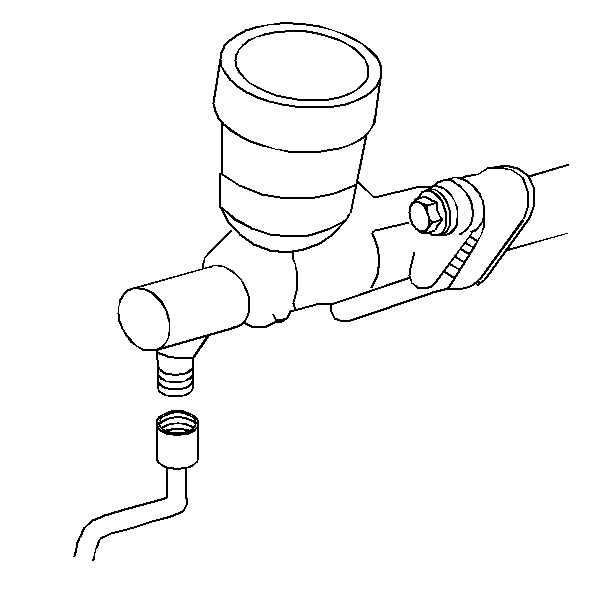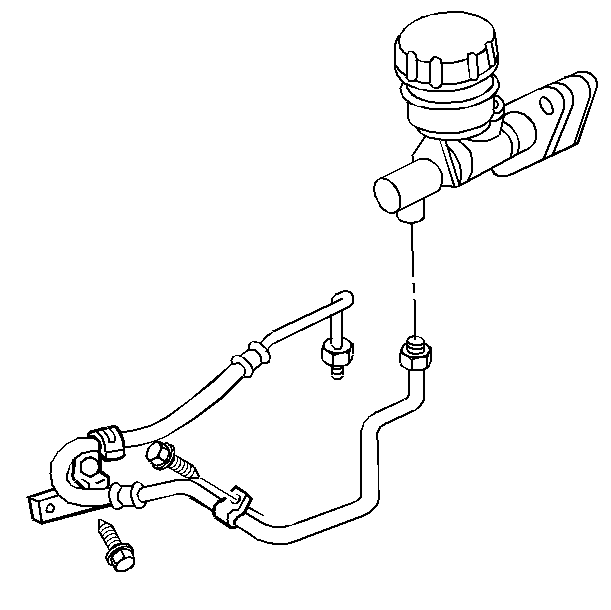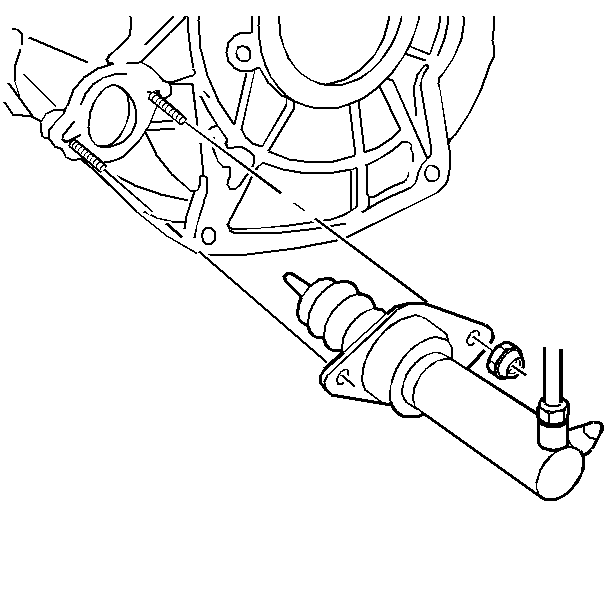Removal Procedure
- Inspect the clutch hydraulic hose for signs of damage or leakage as this could be the source of entry for air into the system.
- Remove the battery. Refer to Battery Replacement in Engine Electrical.
- Remove the hydraulic hose fitting at the clutch master cylinder.
- Remove the bolt securing the hydraulic hose retaining clip to the bulkhead.
- Raise and support the vehicle. Refer to Section 0A.
- Remove the clutch actuator cylinder retaining nuts.
- Remove the hose from the retaining clip at the flywheel housing.
- Remove the hose.



Installation Procedure
- Install the hose.
- Install the hose fitting to the actuator.
- Install the retaining clip at the flywheel housing. Finger tighten the bolts.
- Install the actuator cylinder retaining nuts to the flywheel housing.
- Lower the vehicle.
- Install the hose fitting to the clutch master cylinder.
- Install the retaining clip at the bulkhead.
- Install the battery. Refer to Battery Replacement in Engine Electrical.
- Bleed air from the hydraulic system. Refer to Hydraulic Clutch Bleeding .

Tighten
Tighten the hose fitting to 18 N·m (13 lb ft).
Notice: Use the correct fastener in the correct location. Replacement fasteners must be the correct part number for that application. Fasteners requiring replacement or fasteners requiring the use of thread locking compound or sealant are identified in the service procedure. Do not use paints, lubricants, or corrosion inhibitors on fasteners or fastener joint surfaces unless specified. These coatings affect fastener torque and joint clamping force and may damage the fastener. Use the correct tightening sequence and specifications when installing fasteners in order to avoid damage to parts and systems.
Tighten
| • | Tighten the nuts to 25 N·m (18 lb ft). |
| • | Tighten the bolt to 1.4 N·m (12 lb in). |

Tighten
Tighten the hose fitting to 18 N·m (13 lb ft).

Tighten
Tighten the bolt to 1.4 N·m (12 lb in).
